The Chevy Cruze is a small but fuel-efficient car that's perfect for city driving. But what do you do when your Cruze squeals every time you accelerate? Let's take a look at how to approach this issue.
If your Chevy Cruze is squealing when you accelerate, you should check your belts and pulleys. These belts and pulleys include:
- Water Pump Pulley
- Timing Belt
- Serpentine Belt
- Belt Tensioner
When you hear any noise coming from your car, it is essential to have it examined as soon as possible. This article will discuss what to check and the actions you can take if your Chevy Cruze is squealing when you accelerate. In addition, we will answer other frequently asked questions about the Chevy Cruze, so read on!
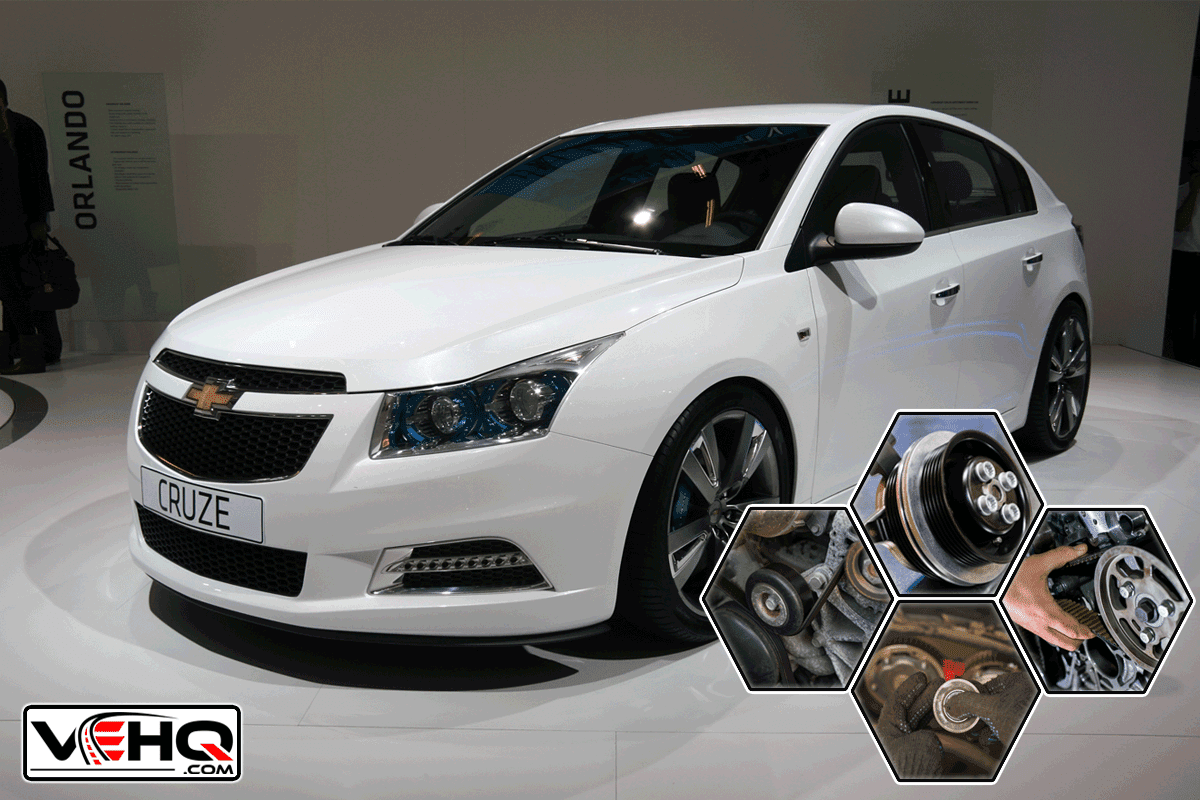
Why is my Chevy Cruze squealing when I accelerate?
It doesn't matter what vehicle it is; over time parts wear out and need to be replaced. The Chevy Cruze is no different, and depending on how often you drive, the conditions you typically drive in [city vs. highway] will affect how long certain parts will last.
If you hear a squealing noise when you accelerate, it is a sure sign that something is wrong. More than likely, it is related to the belt system under the hood of your Chevy Cruze.
It can be tough to diagnose yourself, but sometimes the issue is obvious. Let's look at the common reason for a squealing noise coming from your Cruze.

Water Pump Pulley
The water pump pulley is responsible for pumping coolant throughout the engine. Over time, the bearings in the water pump can go bad and cause a squealing noise.
The best way to check if this is the issue is to have someone else start the engine while you listen at the front of the car. If the noise is coming from the water pump, it will need to be replaced.
Also, if you noticed any visible wear on the water pump pulley, that is another indication that it needs to be replaced.
Timing Belt
The timing belt is located inside the engine and is responsible for synchronizing the pistons and valves. If the timing belt breaks, it can cause serious damage to your engine.
It is recommended that you replace the timing belt every 60,000-100,000 miles. It is always best to check with your mechanic to be sure. If you hear a squealing noise and you have not replaced your timing belt in a while, it is probably time to do so.
Serpentine Belt
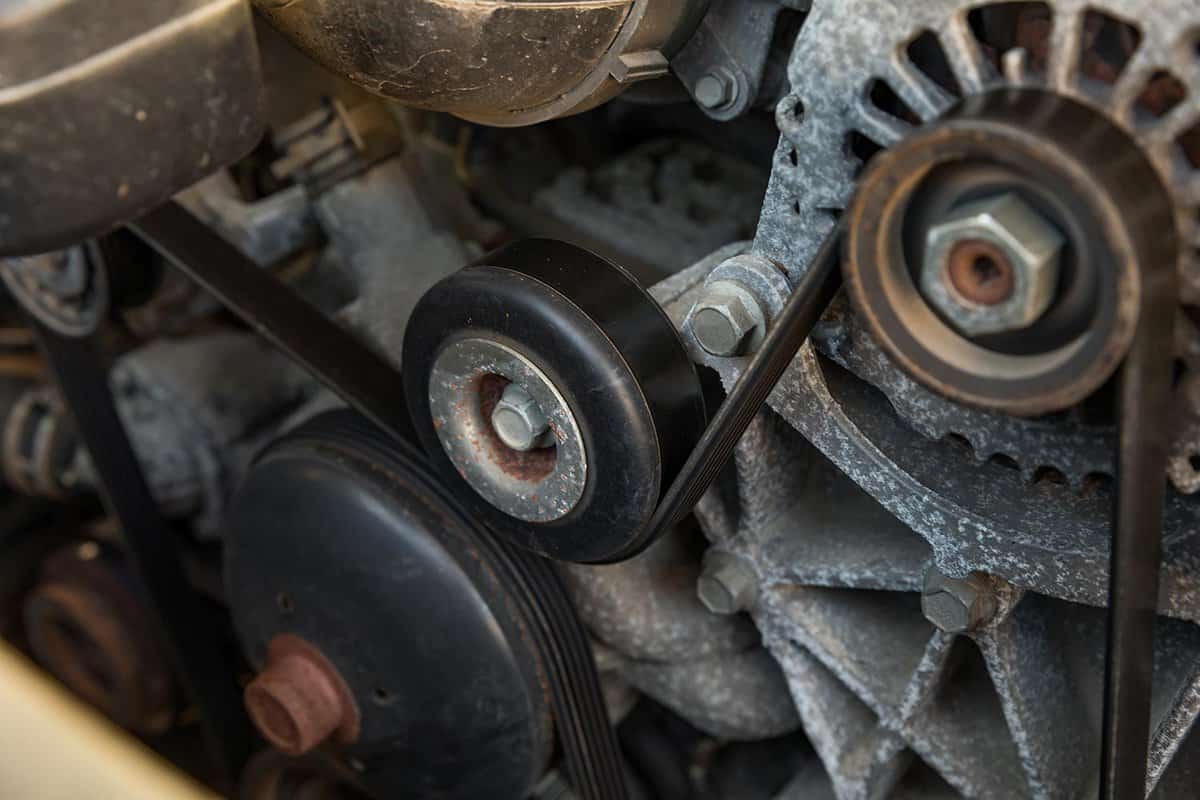
The serpentine belt is located at the front of the engine and is responsible for driving the accessories such as the water pump, power steering, and alternator. Over time, the serpentine belt can become loose or worn and need to be replaced.
If you hear a squealing noise coming from your Cruze, it is a good idea to check the serpentine belt. If the belt is loose, you can try to adjust it yourself. But if the belt is worn, then it will need to be replaced.
If it is evident that the serpentine belt is worn, get to a mechanic as soon as possible because if it breaks, you will be stranded.
Belt Tensioner
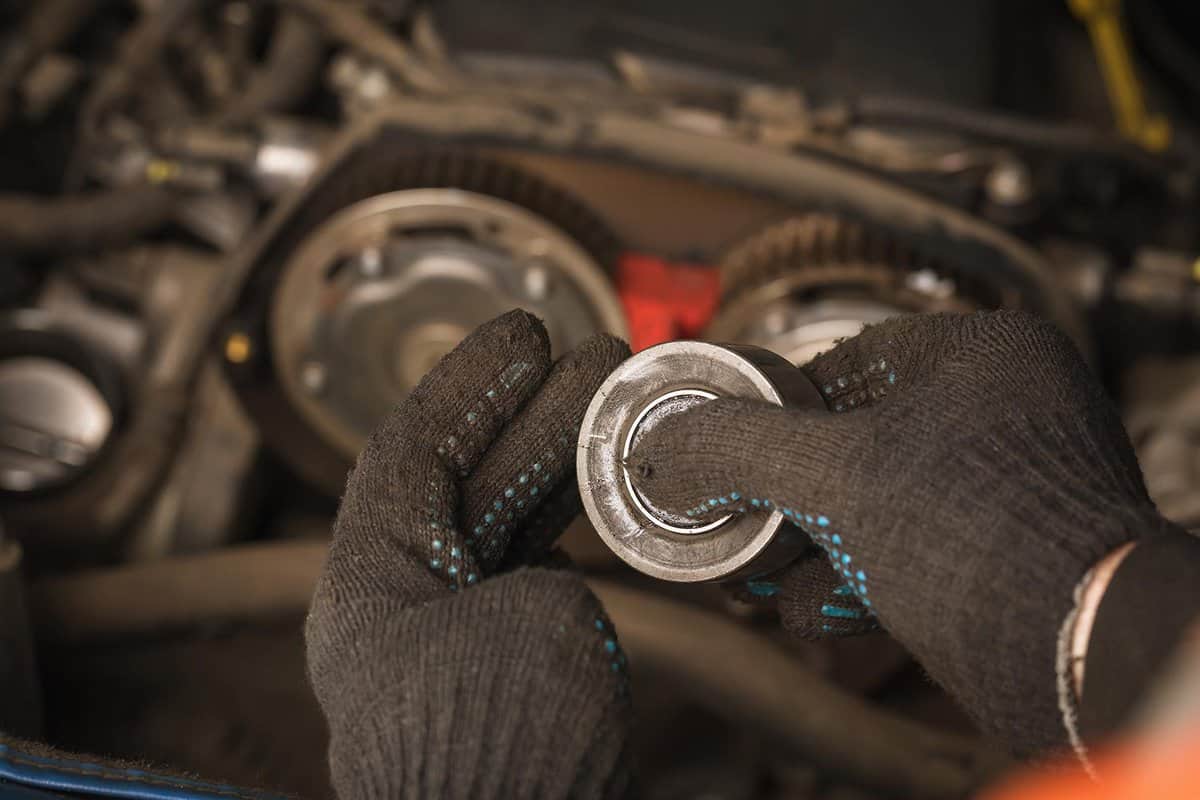
The belt tensioner is responsible for keeping the serpentine belt tight. Over time, the bearings in the tensioner can go bad and cause a squealing noise.
If you suspect that the belt tensioner is the issue, you can try to replace it yourself. But if you are not comfortable doing so, then take it to a mechanic.
Keep in mind that if the belt tensioner is bad, then it is likely that the serpentine belt will need to be replaced as well.
A squealing noise shouldn't be ignored because it is an indication that something is wrong with your car. If you hear a squealing noise coming from your Chevy Cruze, it is most likely due to one of the issues listed above.
It is always best to get to a mechanic as soon as possible so they can diagnose and fix the issue before it becomes a bigger problem.
Will a squealing noise cause a check engine light?
Vehicles can be tricky machines because even though something is wrong, it may not necessarily trigger a check engine light.
In the case of a squealing noise coming from your Chevy Cruze, it is most likely not going to cause a check engine light. However, if the issue is severe enough, it could eventually lead to engine damage, which would trigger the check engine light.
The reason belts won't trigger a check engine light is because they are not considered emissions-related components. So, even though they are essential for the proper function of your car, they will not cause a check engine light.
If you hear the noise and it is frequent, check under your hood to see if you can identify the issue. If you can't, take it to a mechanic if the noise persists.
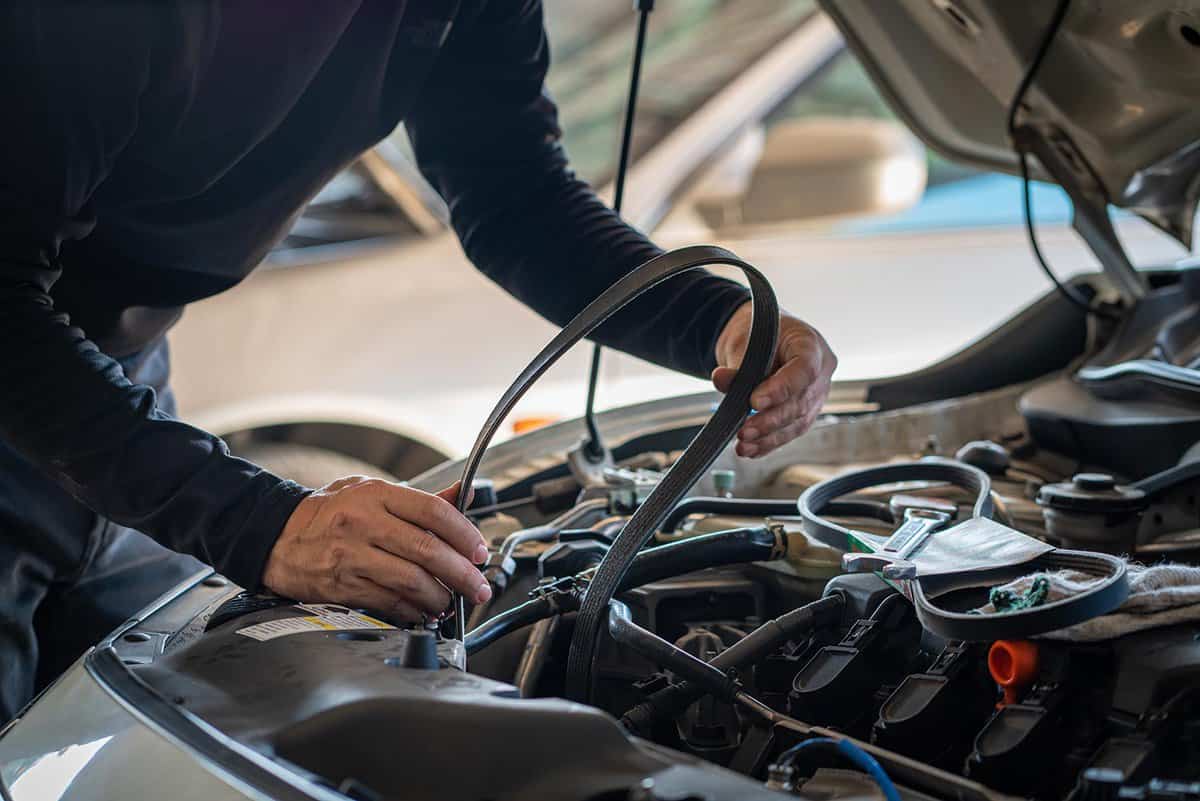
How much is a new serpentine belt on a Chevy Cruze?
Fortunately, serpentine belts aren't expensive, and they are relatively easy to replace. The cost of a new serpentine belt will vary depending on the year and model of your Cruze. That said, it should be around $100-$120.
Typically, the serpentine belt will last 90,000 miles, but it can fail sooner if they are not properly maintained. When you hear a squealing noise coming from your Cruze, it is good to check the serpentine belt.
If you are buying a used Chevy Cruze, then it is a good idea to ask the seller when the last time the serpentine belt was replaced. If it has been a while or has never been done, you should budget for a replacement.
In addition, you can negotiate with the seller to have them reduce the price of the car to account for the cost of the new serpentine belt.
How much is a timing belt replacement on a Chevy Cruze?
Unfortunately, a timing belt replacement is more expensive than a serpentine belt replacement. The cost of a timing belt replacement will vary depending on the year and model of your Cruze, but it should be around $300-$400.
It's not that the timing belt part is expensive; it's the labor. The timing belt is located inside the engine; this means that the mechanic will have to disassemble part of the engine to replace it. This added labor makes it more expensive than a serpentine belt replacement.
Like the serpentine belt, If you are buying a used Chevy Cruze, then it is a good idea to ask the seller when the last time the timing belt was replaced. If it hasn't been replaced, the vehicle is at higher mileage, err on the side of caution and assume that it will need to be replaced soon.
As with the serpentine belt, you can negotiate with the seller to have them reduce the price of the car to account for the cost of the new timing belt. If the seller doesn't work with you, then it may be time to walk away.
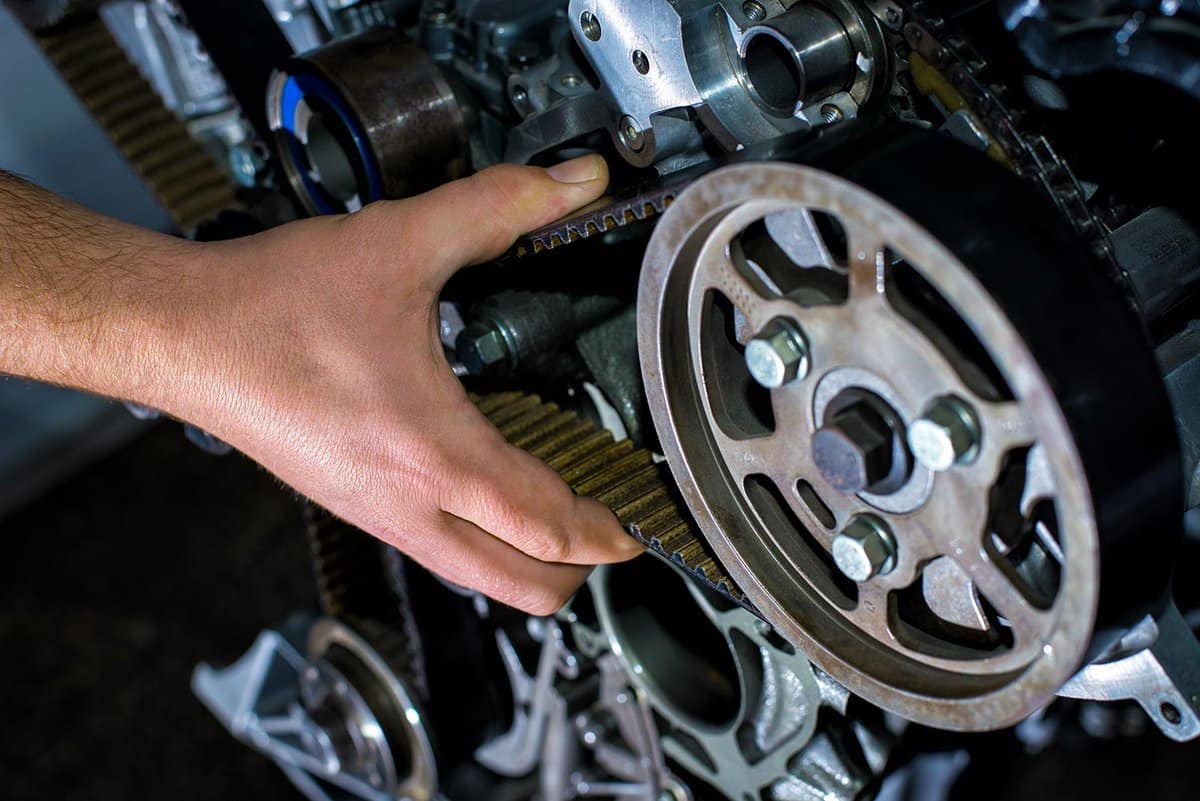
Can I replace a timing belt myself?
You can, but only if you are comfortable working on your car. Replacing a timing belt is not difficult for those who are mechanically inclined. However, it does require some knowledge of how engines work.
If you don't feel comfortable attempting the replacement, take it to a mechanic. It's better to pay for someone else to do it for peace of mind. This way, you know that it was done properly rather than try and do it yourself and end up causing more damage. The last thing you want is to have to replace an engine or other parts.
What about a serpentine belt?
A serpentine belt is easier to replace than a timing belt. However, it's still not something that we would recommend for those who are not mechanically inclined. It takes less expertise but still some knowledge to properly replace a serpentine belt.
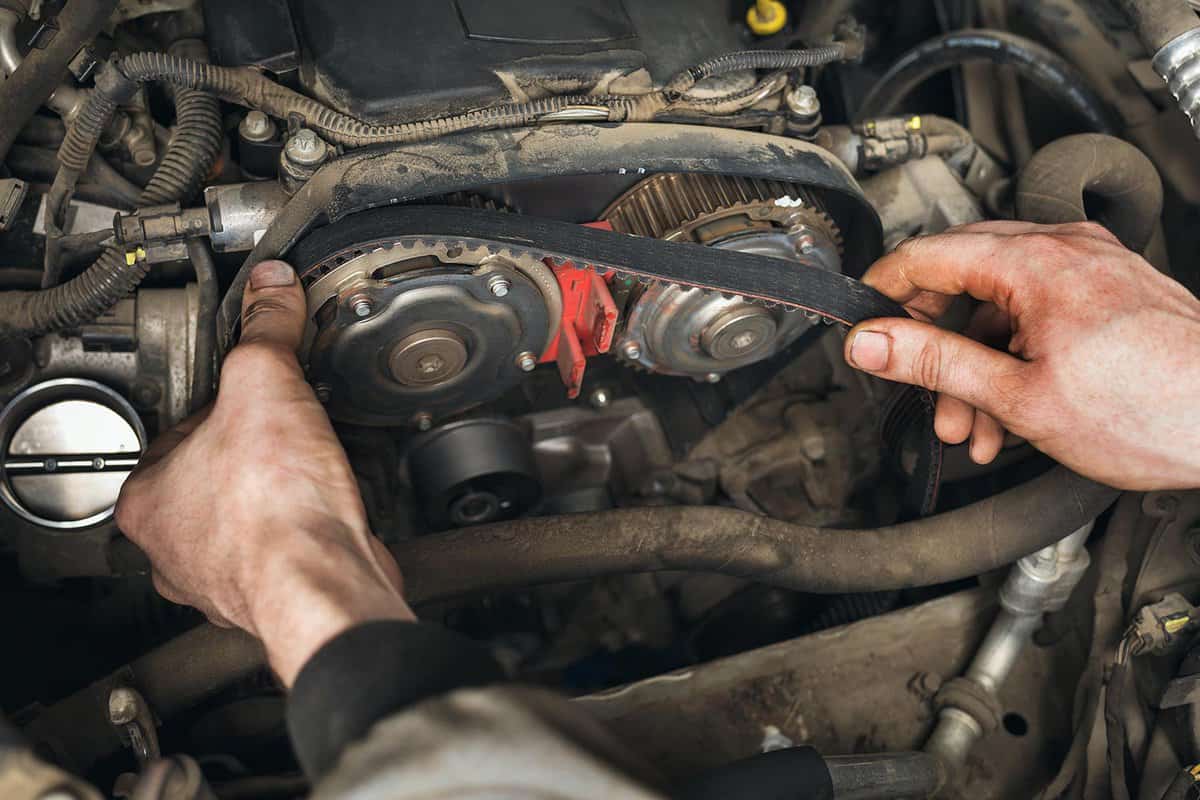
If you don't feel comfortable, then take it to a mechanic and have them do it. It's not worth the risk of damaging your engine or voiding your warranty.
Final Thoughts
Any noise coming from your car should be investigated as soon as possible. This includes a squealing noise which is likely coming from a serpentine belt or timing belt. Do your homework before buying a used Chevy Cruze; make sure to ask about when the last time these belts were replaced.
Made it to the end? Here are other articles you might like:
What's the Best Engine Oil For a Chevrolet Cruze?
